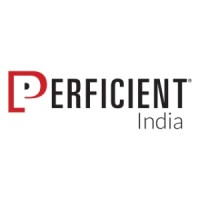Description
Responsibilities
Core Responsibilities:
Strategic Planning: Align with the organization's business strategy & goals as well as their data & technology landscape
Strategic Planning: Identify and define business capabilities to guide target architecture
Strategic Planning: Coordinate client-facing Thought Leadership program, including identifying and prioritizing opportunities with client stakeholders, developing points of views, proofs of concept, and other supporting documentation, and facilitating workshops and presentations for topics/initiatives.
System Design: Define the overall architecture, identify and evaluate risks; and perform assessments and gap analysis; consider options and tradeoffs
System Design: Ensures scalability, security, maintainability, and performance.
System Design: Identify Integration with enterprise systems, third parties, and data sources.
Technology Evaluation: Drive and own the selection of appropriate technologies, frameworks, and tools for platform implementation.
Standards and Guidelines: Manage reference architecture patterns, methodologies, processes, workflows.
Standards and Guidelines: Establish and enforce platform standards, coding practices, and guidelines.
Stay up to date on the latest trends and best practices.
Potential Responsibilities:
Strategic Planning: Guide creation of integrated business and technology roadmap
Strategic Planning: Create alignment between IT and business stakeholders
Strategic Planning: Support sales pursuit activities as required.
Collaboration: Lead the design and implementation of the platform, ensuring scalability, security, maintainability, and performance.
Collaboration: Collaborate with developers, designers, and other stakeholders throughout the development lifecycle.
Collaboration: Mentor and guide junior team members and client resources.
Technology Evaluation: Oversee platform selection and implementation of the platforms
Governance: Definition and assurance to standards for technical documentation, communications, nomenclature, design documents, ensuring consistency, readability, and completeness.
Risk Management: Provide oversight for all aspects of ongoing operations, maintenance and management of the solution domain
Qualifications
A bachelor’s degree in computer science, Information Technology, or a related field is preferred.
Minimum 10+ years of experience in enterprise architecture, software development, or a combination of both.
Proven experience in designing and implementing complex enterprise-level software solutions.
Experience working with development frameworks and technologies is a plus.
Strong understanding of security best practices and data governance principles.
Excellent communication, collaboration, and problem-solving skills.
Ability to think strategically and translate business needs into technical solutions.
Experience architecting enterprise level custom applications utilizing cloud platforms such as AWS, Azure, or GCP. Experience with platforms such as Adobe, Salesforce, and Commerce (such as HCL Commerce)
Proficiency in relevant architecture modeling tools (e.g., UML, ArchiMate).
Education
Any Graduate
- Posted On: 30+ Days Ago
- Experience: 10+ years of experience
- Openings: 1
- Category: Solution Architect
- Tenure: Flexible Position

